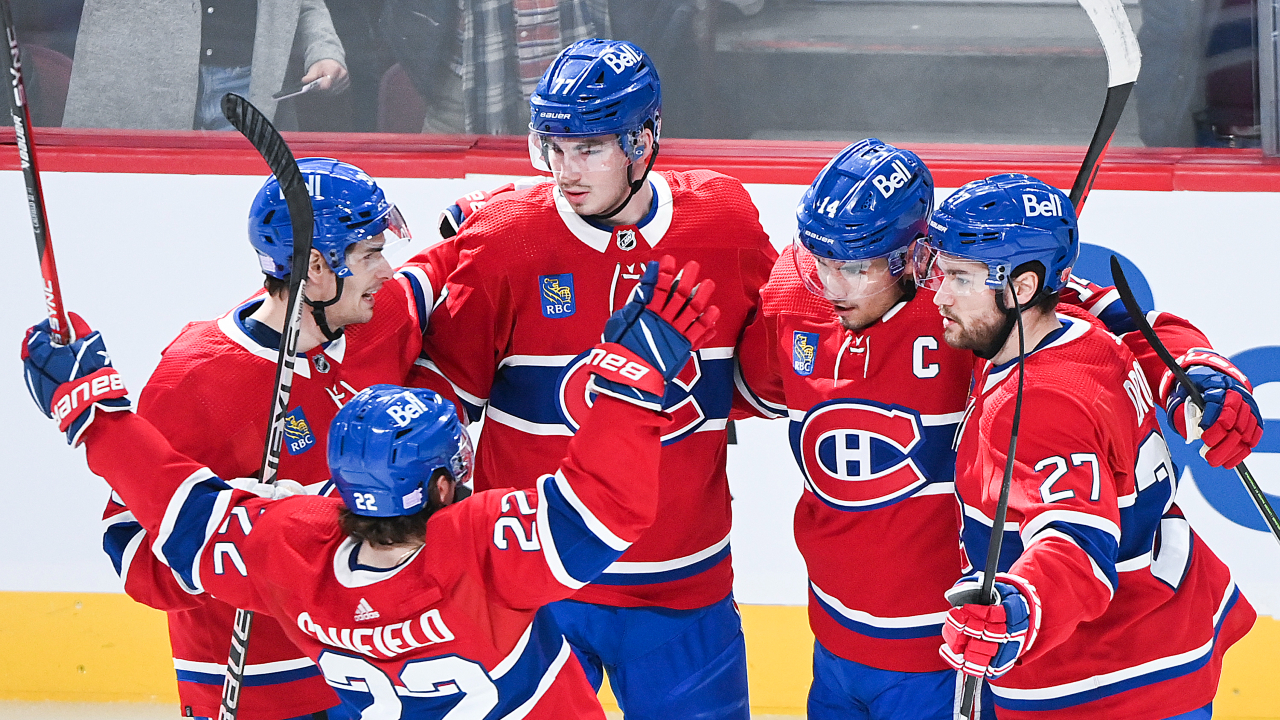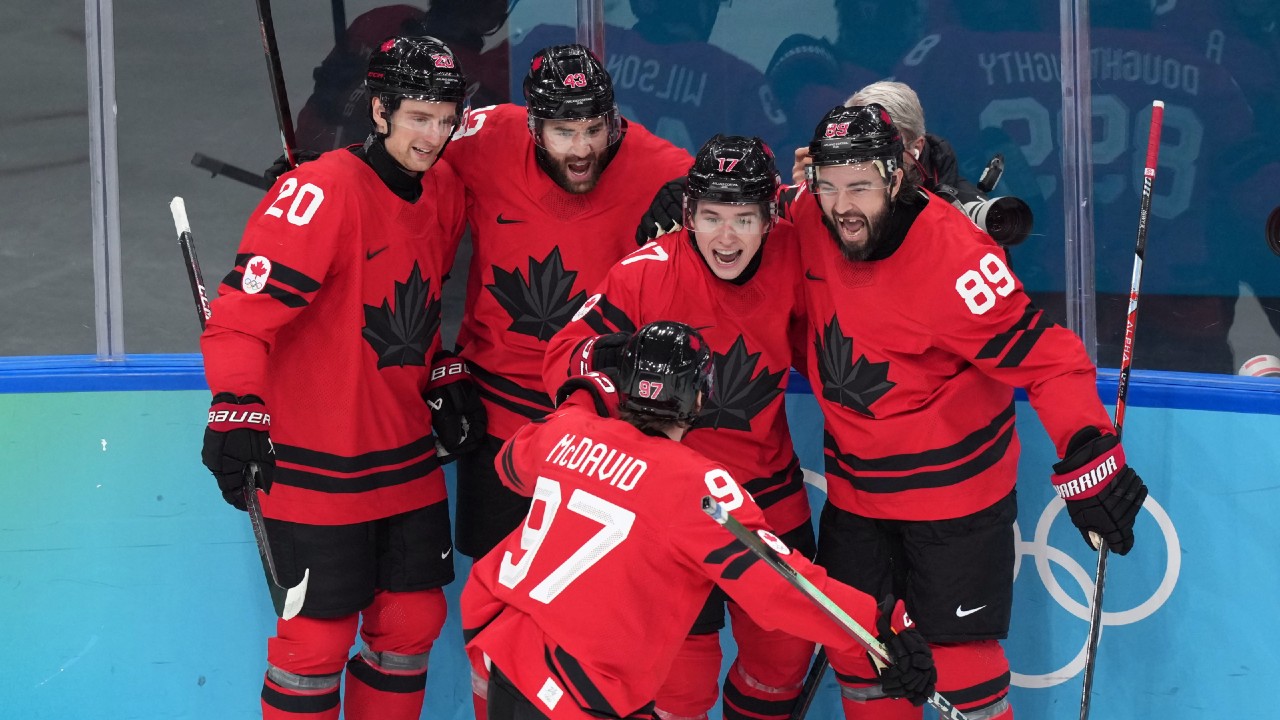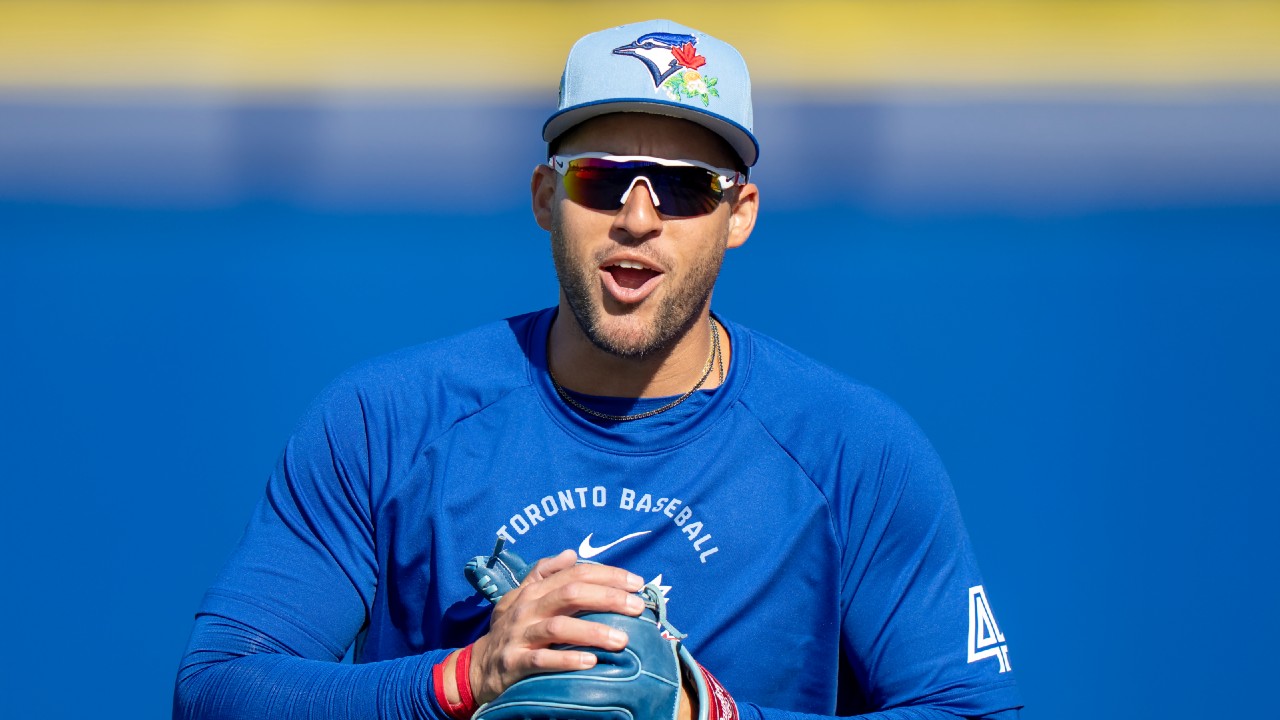
We’re one quarter of the way through the NHL season and the Montreal Canadiens are two points out of a wild-card position, three points out of third in the Atlantic Division, sitting at 11-9-1, owning the 16th-best points percentage in the NHL, and defying everyone’s expectations but their own.
“I knew we had a great group,” said Canadiens captain Nick Suzuki after Monday’s practice. “We’ve got special guys in here and we’re very underrated, obviously, with what we were seeing the beginning of the year, and I think we’re proving a lot of people wrong.”
It’s hard not to be very impressed by it, considering the inexperience of the roster—not to mention the coaching staff—and the quality of competition in the Atlantic alone.
It’s fair to say that, with the Canadiens currently ranked in the bottom third of the league in expected goals at even strength and facing a probable regression, maybe we shouldn’t be.
But we can only go on what we’ve seen so far and, considering the team’s primary objectives were the development of its young players and its culture, the results suggest the process has been extremely healthy to date.
Coach Martin St. Louis agrees.
Before the campaign began, he expressed that his only hope was to see growth from his team. And before the Canadiens pulled off a dramatic win over the Blackhawks in Chicago last Friday, St. Louis outlined how he felt that had been achieved through the first 20 games.
“We’ve gotten better in a lot of different facets of our game,” the coach said. “We push every part of our game. Whether it’s our offensive game, rush coverage, counterattack, our dzone, power play, penalty kill, we’ve pushed all of it to another level.
“Are we always consistent in all of that? No.
“But our high level in each department has gotten higher.”
If it has—and it certainly appears it has—you can’t undersell how much the Canadiens’ increased competitiveness and mental engagement from a year ago to now have factored into it.
That’s been apparent as much at practice as it has been in games, and it’s led to a resiliency that’s been apparent in almost every win—and in many of the losses, too.
And with that resiliency, the team’s sense of belief in itself has also grown.
“I think with our style and the way we play,” said Suzuki, “we’re in every game.”
That the Canadiens have a way of playing that’s not only identifiable but also in line with what St. Louis hoped it would look like before the season started is perhaps the biggest development through the first quarter.
“I want us to be a team that’s tough to play against on both sides of the puck, and not because we work hard but because we work smart and we’re together,” he told us in an exclusive interview prior to the season. “I want to play defence as soon as we lose the puck and I want to play offence as soon as we win the puck. I don’t want to start defending when we’re in our zone and I don’t want to start offence when we’re in their zone. I want us to be a team that connected and balanced.”
St. Louis made those comments after the Canadiens lost all eight exhibition games they played, and he said then that he wasn’t sure how long it would take for that identity to take shape.
The 46-year-old has to be elated that, within 24 hours of saying what he said, the Canadiens displayed a level of connectivity and balance few would’ve thought they were capable of before they kicked off their season with a galvanizing win over the Toronto Maple Leafs.
Have they lived up to that standard through entire games rather than for long stretches of play within a given game? No.
But Suzuki described the Canadiens as a team that is “very fast,” and “competitive,” and “in your face” when they play their best, and said they’ve been that through parts of every game, with the exception of a 7-2 loss to the Buffalo Sabres last week.
He’s been their most consistent player, registering points in all but six games.
Suzuki’s been Montreal’s most productive player, too, scoring 12 goals, adding 12 assists, and going 3-for-3 in the shootout.
He and linemate Cole Caufield emerging as superstars—with Caufield joining Suzuki among the NHL’s top-10 goal scorers, and with him producing a point per game—is a big part of the reason Canadiens games have become appointment viewing.
Kirby Dach’s progression into a player who suddenly has 17 points in 21 games (after producing just 26 over 70 with the Blackhawks a season ago) is another thing Canadiens fans can’t turn away from.
The emergence of rookie Kaiden Guhle as a top-pairing defenceman (who has twice held generational talent Sidney Crosby shot-less and pointless and shut down some of the NHL’s best forwards) has been something else worth tuning in for on a nightly basis.
And though a 21-game sample is small, it’s been revealing enough for fans to get excited about what fellow rookie defencemen Arber Xhekaj, Jordan Harris and Johnathan Kovacevic will eventually do to accelerate the Canadiens’ ascension to contender status.
All three have played above expectations, especially when you consider that Harris began as the most seasoned of the three thanks to his 10 games of prior experience in the NHL.
Goaltender Sam Montembeault—who played just 25 games in the league before starting 38 for Montreal last season—has shattered expectations. The Canadiens’ backup is responsible for five of the team’s 11 wins and boasts a .924 save percentage after winning just eight times and posting a .891 save percentage a season ago.
If he doesn’t taper off, like starter Jake Allen has of late after a very strong beginning of the season, the Canadiens could continue climbing the standings.
If Christian Dvorak, Brendan Gallagher and Mike Hoffman continue to redeem themselves after producing very underwhelming 2021-22 results; if Sean Monahan continues to be one of the best third-line centres in the league; if 18-year-old Juraj Slafkovsky continues to improve and finds a way to push himself up the lineup; if the penalty kill continues to succeed 80 per cent of the time; and if the power play bumps its way up two or three percentage points, it certainly won’t hurt.
We’ll see what the Canadiens can do.
Whatever it is, they’ve already proven to be shockingly good through a quarter of the season.







